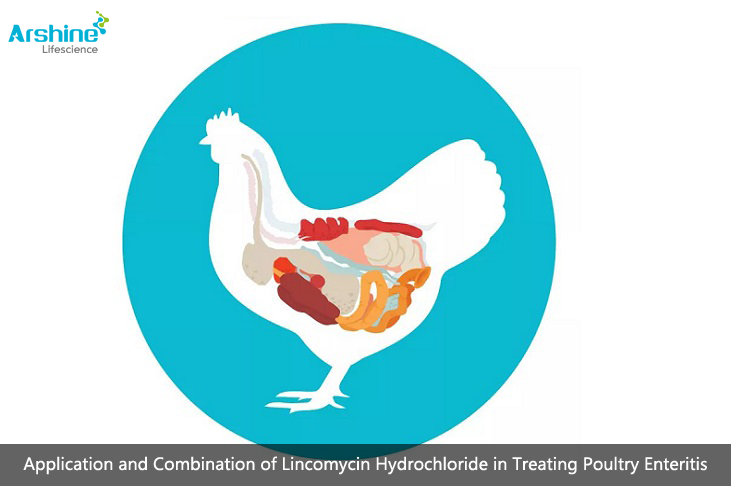

Arshine Lincomycin hydrochloride primarily acts on various anaerobic bacteria, commonly seen in veterinary practice for livestock and poultry, such as Clostridium perfringens and Actinomyces. In addition, it is effective against infections caused by Gram-positive bacteria like Staphylococcus and Streptococcus, including pneumonia, peritoneal infections, and airsacculitis. When combined with spectinomycin hydrochloride, it can effectively eliminate the pathogens responsible for these diseases.
For example, when chickens suffer from gastrointestinal disease accompanied by diarrhea, the causative agents can include Gram-negative bacteria, Gram-positive bacteria, and anaerobic bacteria. Anaerobic bacteria, especially Gram-positive ones, are often the primary pathogens. Common medications like neomycin sulfate, colistin sulfate, spectinomycin sulfate, ampicillin sulfate, and enrofloxacin mainly target Gram-negative bacteria but are ineffective against anaerobic bacteria.
Currently, medications that are sensitive to anaerobic bacteria include nitroimidazoles (such as metronidazole, tinidazole, and dimetridazole), lincosamides (such as lincomycin), and broad-spectrum penicillins. Although other antibiotics exist, their anti-anaerobic strength is weaker and they are generally not used as first-line treatments against anaerobic infections. Antibiotics like florfenicol (an amphenicol), ceftiofur (a cephalosporin), and macrolides are less effective against anaerobes and are not the preferred options for controlling anaerobic infections.
Applications:
Treatment of airsacculitis and colibacillosis in chickens:
Secondary enterotoxemia with coccidiosis:
Oviductitis and enteritis in laying hens:
Important Considerations for Lincomycin Use:
Add: Block 14, No.100, Luyun Road, Changsha 410205, Hunan, China.
Email: info@arshinevet.com
WeChat: +8618874001228
WhatsApp: +8615697311407
Tel:86-731-82294958